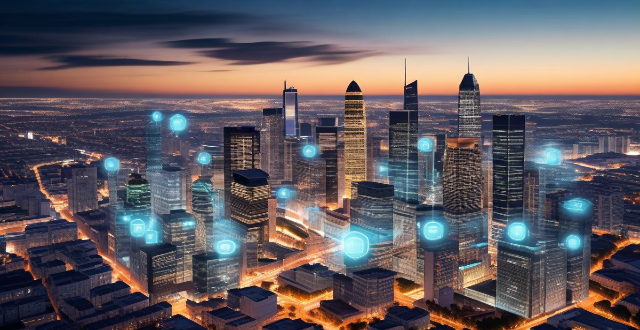Huawei's telecommunication technology is crucial for the development of smart cities and IoT applications, providing reliable connectivity, IoT integration, and enabling various smart city applications. The company addresses security and privacy concerns and continues to invest in future technologies like edge computing and AI.

Huawei's Telecommunication Technology in Smart Cities and IoT Applications
Huawei, a leading global provider of telecommunication solutions, plays a crucial role in the development of smart cities and Internet of Things (IoT) applications. The company's advanced technologies enable efficient data transmission, connectivity, and integration of various devices and systems, contributing to the creation of intelligent and interconnected environments. In this article, we will explore how Huawei's telecommunication technology contributes to smart cities and IoT applications.
Connectivity and Networking Infrastructure
One of the key aspects of smart cities is the need for reliable and high-speed connectivity. Huawei provides robust networking infrastructure solutions, including 5G networks, fiber optics, and wireless technologies, that support seamless communication between devices and systems. These technologies ensure that data can be transmitted quickly and efficiently, enabling real-time monitoring and control of city operations.
IoT Integration and Management
Huawei's IoT platform, OceanConnect, offers end-to-end solutions for managing and integrating various IoT devices and sensors. This platform allows businesses and municipalities to collect, analyze, and act on data from multiple sources, such as traffic cameras, energy meters, and environmental sensors. By leveraging OceanConnect, organizations can create intelligent systems that automate tasks, optimize resource allocation, and improve overall efficiency.
Smart City Applications
Huawei's telecommunication technology enables a wide range of smart city applications, including:
- Smart Grid: Huawei's solutions facilitate the integration of renewable energy sources into the power grid, enabling more efficient energy management and reducing carbon emissions.
- Intelligent Transportation: Through the use of connected vehicles, traffic management systems, and intelligent parking solutions, Huawei helps cities reduce congestion and improve public safety.
- Smart Healthcare: By connecting medical devices and patient records through secure networks, Huawei supports remote diagnosis, telemedicine, and improved patient care.
- Smart Buildings: Huawei's technology enables buildings to become more energy-efficient by automating lighting, heating, ventilation, and air conditioning (HVAC) systems based on occupancy levels and environmental conditions.
Security and Privacy
As smart cities and IoT applications become increasingly prevalent, security and privacy concerns also rise. Huawei addresses these challenges by implementing robust security measures across its products and services. The company's security framework includes encryption techniques, access control policies, and regular security audits to protect sensitive data and maintain user trust.
Future Developments
Looking ahead, Huawei continues to invest in research and development to further advance its telecommunication technology for smart cities and IoT applications. Some areas of focus include:
- Edge Computing: By moving computational tasks closer to where data is generated, edge computing reduces latency and increases efficiency in IoT applications.
- Artificial Intelligence (AI): Huawei is integrating AI capabilities into its products to enable predictive maintenance, automated decision-making, and enhanced user experiences.
- Digital Twin Technology: This emerging technology creates virtual replicas of physical objects or environments, allowing for simulation and optimization before implementation in the real world.
In conclusion, Huawei's telecommunication technology plays a vital role in shaping the future of smart cities and IoT applications. Through its innovative solutions and commitment to security and privacy, Huawei is helping cities around the globe become more efficient, sustainable, and livable for their inhabitants. As the company continues to push the boundaries of what is possible in telecommunication technology, we can expect even greater advancements in smart city development and IoT integration in the years to come.